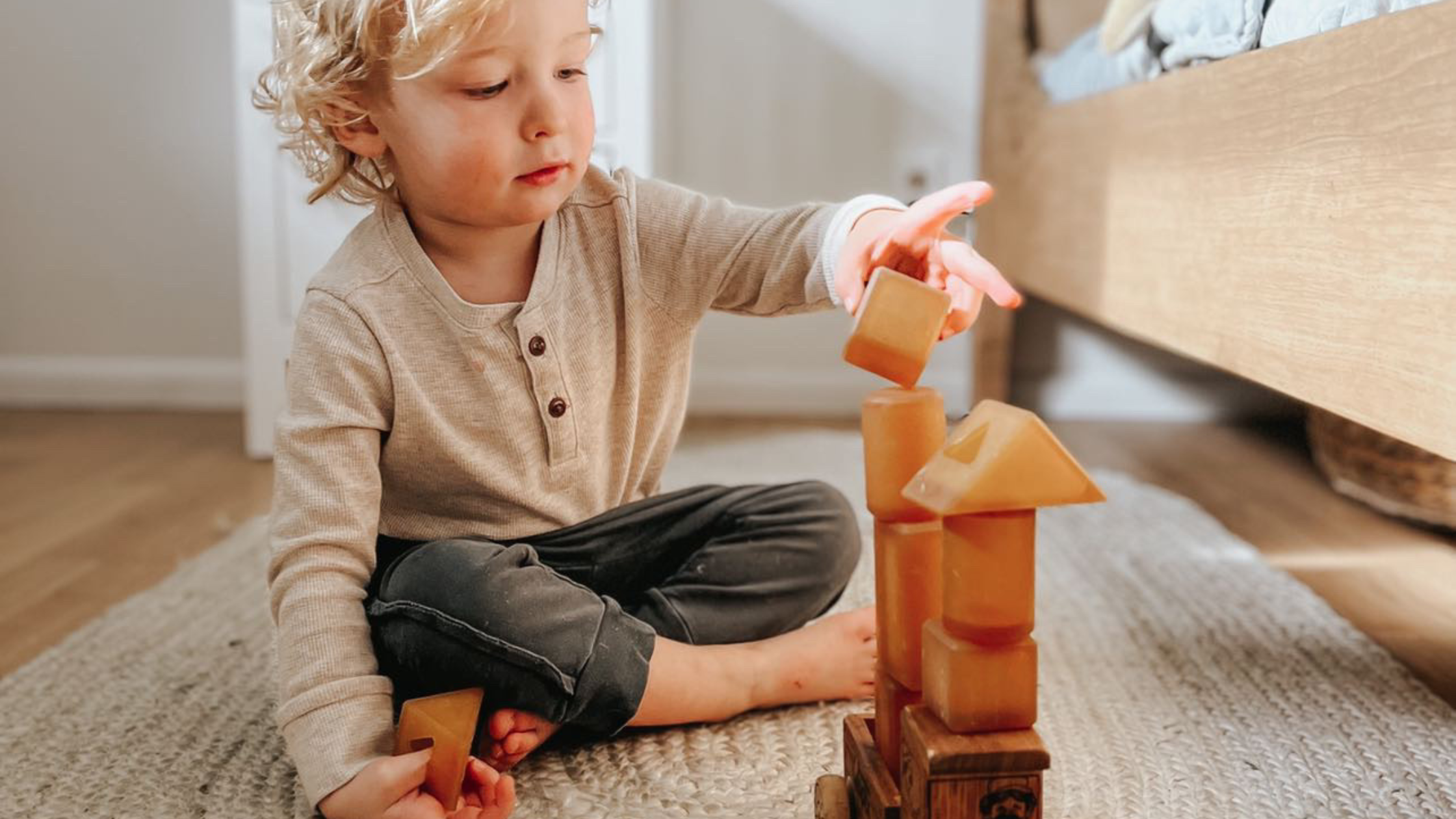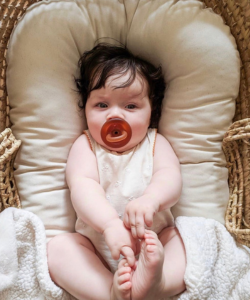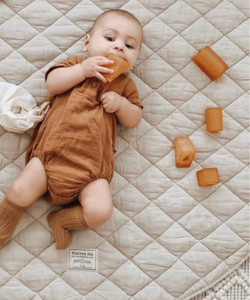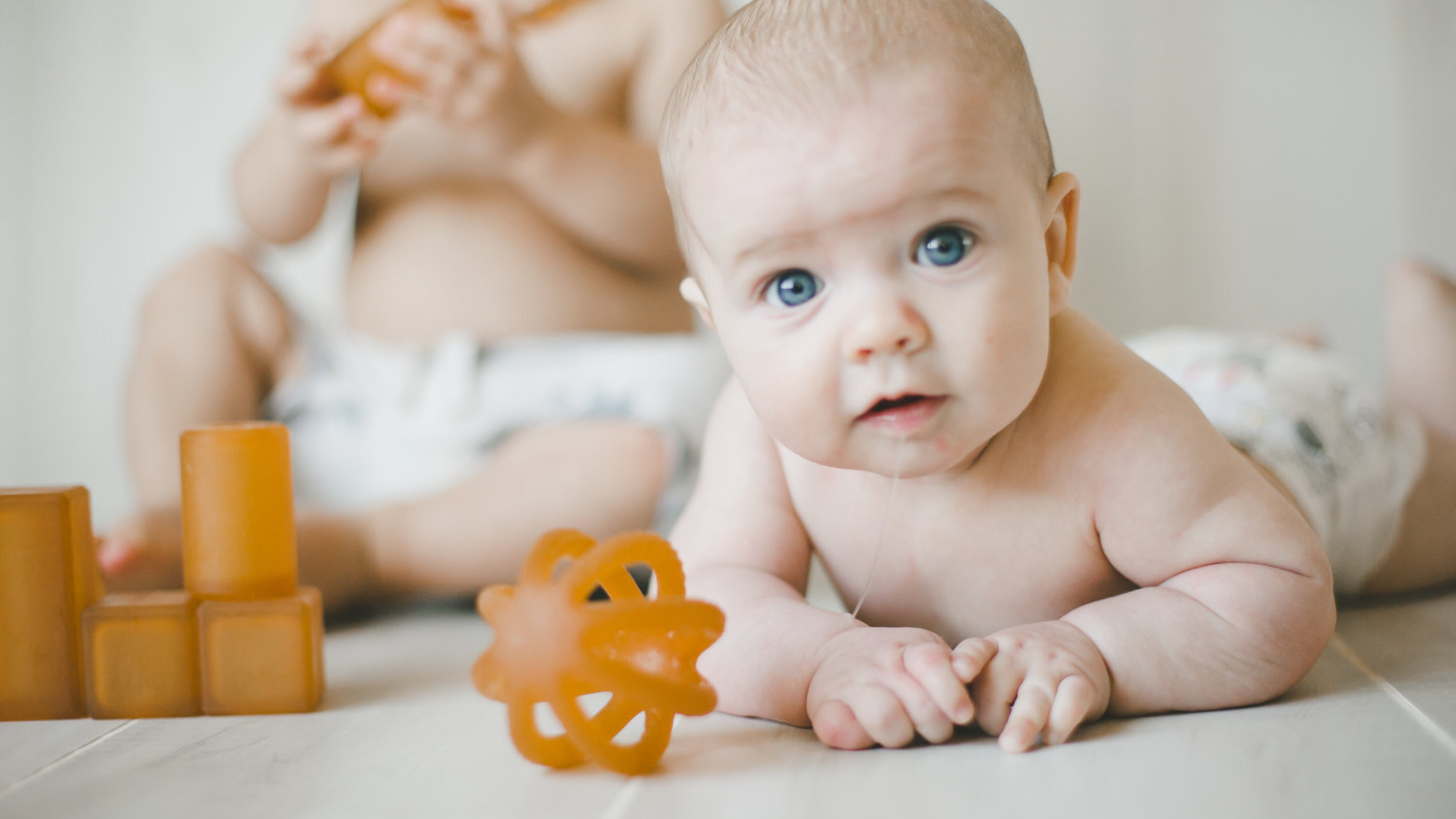
What ages are building blocks good for?
We often get asked, “What age are building blocks good for?” Building blocks have stood the test of time as one of the most beloved and versatile toys for children. From simple wooden cubes to Ecopiggy natural rubber blocks to the more advanced interlocking systems, building blocks offer countless benefits to children of various ages. Understanding the significance and age-appropriateness of building blocks during a child's development can help parents and caregivers make informed choices for their little ones. Let's dive into the world of building blocks and explore what age groups can benefit the most from this timeless toy.
Infants and Toddlers (0-2 years):
During the first two years of life, building blocks can play a crucial role in children's cognitive, physical, and sensory development. At this stage, infants and toddlers primarily benefit from building blocks that are specifically designed for safety and sensory exploration--like soft, easy-to-grab Ecopiggy natural rubber blocks. Soft blocks with varied textures, vibrant colors, and different sizes can engage young children's senses and encourage early hand-eye coordination.

Preschoolers (3-5 years):
As children grow into preschoolers, building blocks take on a more educational role. At this stage, children begin to develop their fine motor skills, spatial reasoning, and early math concepts. Preschoolers can excel with basic building blocks, such as Ecopiggy natural rubber blocks, as they stack, sort, and create structures of varying heights. These activities promote problem-solving skills, spatial awareness, and hand-eye coordination.

School-Age Children (6-12 years):
Ecopiggy building blocks continue to be valuable tools for learning and the development of cognitive skills during the school-age years. At this stage, children can graduate to more complex building systems, like LEGO sets, magnitiles, etc. These sets foster creativity, critical thinking, and problem-solving abilities. Children can build intricate models, follow instructions to complete projects, and even engage in collaborative building activities with siblings or friends.

Adolescents and Adults (13+ years):
While building blocks are often associated with early childhood development, their benefits extend into the teenage years and adulthood. Advanced building sets, including robotics, architectural models, and engineering kits, can nurture creativity, logical thinking, and technical skills. Aspiring engineers and designers can explore their passions by constructing intricate models through building block systems tailored for older age groups.
Building blocks are versatile toys that cater to a wide range of ages, from infants to adults. While the benefits of building blocks vary depending on the age group, they consistently support cognitive, physical, and creative development. From sensory exploration to problem-solving and technical skills, the possibilities are endless when it comes to the educational and entertainment value of building blocks. By choosing age-appropriate building block sets, parents and caregivers can actively participate in their children's development while fostering a lifelong love for learning through play.





Leave a comment
This site is protected by hCaptcha and the hCaptcha Privacy Policy and Terms of Service apply.